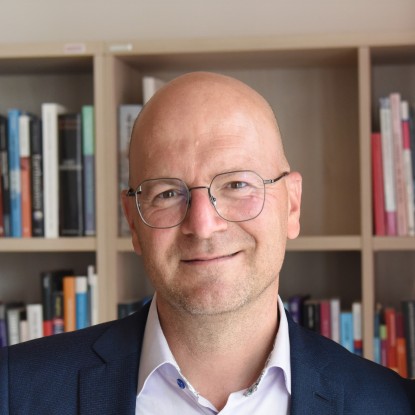Institutionalizing Low-Carbon Development: Concluding Workshop in Bonn with International Guests
Researchers from the Chair of International Relations at TU Darmstadt, together with colleagues from the University of Potsdam, held the concluding workshop of their DFG-funded research project Institutionalizing Low-Carbon Development (INLOCADE).
2025/07/01 by Jens Marquardt
The event opened with a public session featuring a keynote by Ricardo Külheim, Head of Component for Energy Transition Cooperation and Regulatory Policy at GIZ. The keynote was followed by a panel discussion with international project partners from Brazil, India, Indonesia, and South Africa. Dr. Tracy Ledger (Head of the Just Transition Programme, Public Affairs Research Institute, South Africa), Mada Ayu Habsari (Chairperson, Indonesian Solar PV Association), Dr. Debalina Chakravarty (Assistant Professor in Economics, Indian Institute of Technology Dharwad), Ricardo Baitelo (Project Manager, Instituto de Energia e Meio Ambiente, Brazil) and HyunAh Yi (Research Fellow at IDOS) shared their insights and critical reflections on the project’s findings and the broader challenges of low-carbon transitions in their respective countries.
The public event was followed by an internal authors’ workshop, where the research team and their partners collaboratively developed contributions for a forthcoming edited volume. The volume will present country case studies and advance a conceptual framework to analyze the political institutionalization of climate change mitigation.
Background
Governments and non-state actors worldwide have made extensive commitments to address climate change. They have launched numerous projects, programs, and innovative approaches to demonstrate what is both necessary and feasible to mitigate emissions. Yet, many of these initiatives remain confined to experimental phases or fail to scale beyond niche contexts. Despite substantial technological advancements and increased financial investments in recent decades, the long-term institutionalization of mitigation efforts continues to pose a major challenge in the post-Paris climate governance landscape.
This challenge is particularly pressing in the Global South, where future emissions are projected to rise most sharply. The INLOCADE project examines this issue through the lens of political institutionalization in the high-carbon energy sectors of four democratic emerging economies: Brazil, India, Indonesia, and South Africa. Over the past 4.5 years, the project has explored the institutional and political conditions that enable or hinder lasting low-carbon transitions.
The Bonn workshop served as a platform to present the project’s key findings and discuss their practical and theoretical implications. It brought together international researchers, policy practitioners, and project partners – including some attending the UNFCCC intersessional negotiations in Bonn. Hosted at IDOS, a leading institute in global sustainability and climate governance research (notably through its Klimalog project), the event also explored synergies between INLOCADE’s findings and IDOS’s work on low-carbon transitions.



